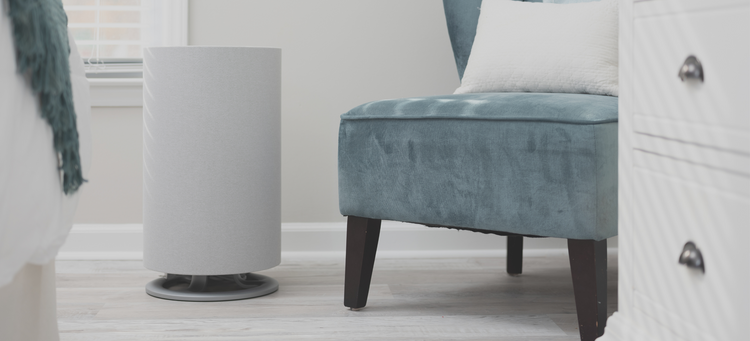The Link Between Allergies And Mental Health Conditions
Allergies and mental health conditions like anxiety and depression are common. Nearly everyone is affected by one or the other. But, is there a connection between the two, and if so, what can be done about it?
What scientific research suggests a link between allergies and mental health? According to The Atlantic, multiple scientific studies show that having allergies does seem to increase the risk of anxiety and depression.
This research is still new so the causal connection has not been determined yet, but logically it makes sense that allergies could affect mental health and vice versa. Having allergy symptoms and inflamed sinuses constantly makes you feel like you have a cold, and fatigue from feeling this way on a daily basis can lead to anxiety or depression.
How allergies affect mental health
Mental and physical health are typically connected. Why do allergies impact your mental health? Seasonal allergy symptoms include postnasal drip, coughing, and fatigue with varying severity and can make someone with terrible allergies feel like they’re constantly sick. There’s also the brain fog that comes with both allergies and allergy treatments. It’s no wonder that chronic physical health issues can negatively affect your mental health.
It’s important to pay attention to both your physical and mental health since there is a strong relationship between the two. Sometimes a mental health disorder, like anxiety, and a physical health issue, like asthma, can have similar symptoms, and one can affect the other.
Asthma and anxiety can both cause shortness of breath and one can aggravate the other. Shortness of breath from a panic attack could trigger your asthma, or the anticipation of an asthma attack could lead to anxiety. This relationship between physical and mental health is similar to how allergies can potentially affect your mental health and vice versa.
Types of allergic reactions that can impact mental health
What mental health disorders are commonly accompanied by allergies? The most common allergic reactions that can impact mental health are asthma, allergic rhinitis (hay fever), and atopic dermatitis (eczema). A constant state of inflammation and fatigue from allergies can lead to brain fog.
The reason for the causal connection between allergies and mental health isn’t exactly clear, but there is a relationship. According to Medical News Today, the explanation may lie in inflammation as a symptom. The inflammation of our bronchial tubes, sinuses, or skin might be causing inflammation in the brain and affecting our mental health. It could also be the stress of experiencing a chronic allergic reaction to an allergen that’s weighing on our mental health.
Whatever the link between mental health and allergies is, it’s undeniable that both commonly affect almost everyone and it’s beneficial to figure out how to mitigate allergy symptoms and improve mental health.
Ways to reduce allergens and improve mental health

Determine and eliminate allergens: The first step of realizing you are allergic to something is making a note of it. If every time you wear fleece you get a rash and feel itchy, then it probably means you’re allergic and shouldn’t be wearing that fabric. If you discover you have a food allergy, then you need to be careful not to consume food that contains peanuts, shellfish, or whichever specific food gives you symptoms.
Mitigate the allergen: If you’ve identified an allergy but can’t completely eliminate it there are still ways to mitigate the allergen and reduce symptoms. If you’re allergic to dust or dust mites, cleaning with a microfiber towel, vacuuming, and washing bedding on a regular, frequent schedule will help. If you have a seasonal allergy to pollen, checking the pollen count in your area can help you avoid prolonged outside activity on high pollen days.
Reduce stress and anxiety: There are several ways to help reduce general stress and anxiety to improve overall mental health. Meditation, deep breathing exercises, yoga, daily walks outside, getting enough quality sleep, and eating a healthy diet are all proven methods you can try to help manage stress and anxiety.
Clean your indoor air: Cleaning your indoor air with an air purifier will help to filter out any unwanted airborne allergens. A good air purifier will clean any dust, pollen, and pet dander floating around your home before it can aggravate your allergies.
Talk to your doctor: It’s important to talk to your doctor if you’re struggling with allergy symptoms or a mental health condition and these solutions aren’t providing relief. There are countless options for over-the-counter medication for allergies that could help, but knowing which one to try and understanding potential side effects is a conversation to have with a medical professional.
Although there still needs to be more research done on the connection between allergies and mental health it’s undeniable that most allergies and mental health can be hindering aspects of our lives.
Most people have issues with at least one of these and learning how to manage and maintain positive mental health and mitigate allergy symptoms will increase the quality of life for anyone who is affected.







